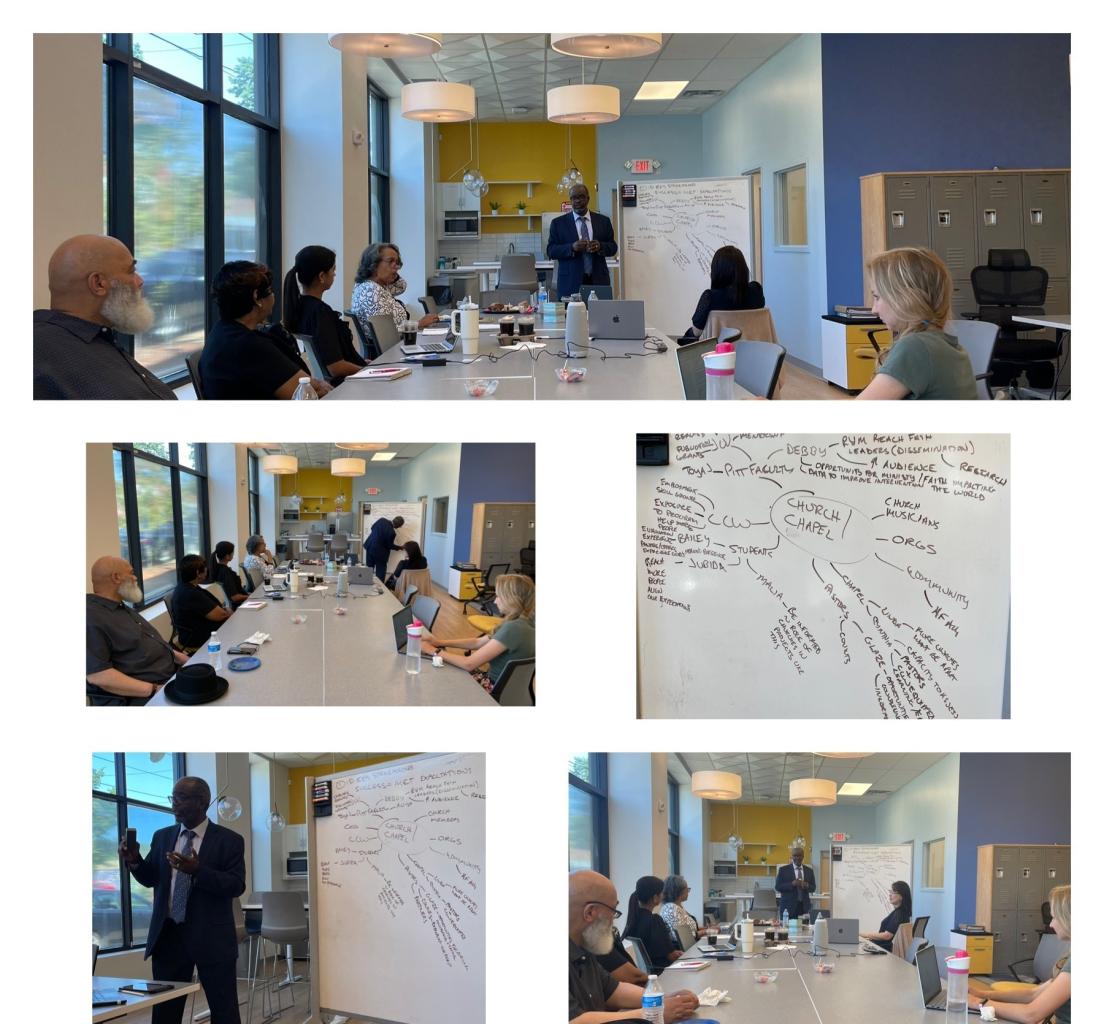The Renew Your Mind study builds on previous collaborations among the interdisciplinary Pitt researchers, mental health clinicians with expertise in Cognitive Behavioral Therapy (CBT), faith leaders in African American churches, and Black church musicians, which is called the CHURCH (Congregations as Healers Uniting to Restore Community Health) project. The CHURCH project focused on developing Renew Your Mind, a CBT-based and spiritually informed mental health training curriculum developed to help African American faith leaders to better serve the mental health needs of their congregational members.


First Renew Your Mind Community Implementation, September 2024
This study will implement Renew Your Mind for faith leaders from 8 African American churches in Homewood and evaluate its preliminary effects on participants’ knowledge of core CBT skills and attitudes toward mental health promotion and treatment. The study will also examine faith leaders’ acceptability and perceptions of the feasibility of implementing and sustaining Renew Your Mind in Black churches. Ultimately, the study seeks to promote positive mental health among African American communities by increasing access to evidence-based strategies to manage mental distress through cultural tailoring and integration of spirituality.
The Renew Your Mind study is conducted through the expanded partnership between the CHURCH and the CHAPEL project teams, a collaboration between, A Second Chance Inc. , the largest kindship care provider in Pennsylvania, the Bible Center Church in Homewood, PA, and the Allegheny Department of Human Services that seeks to address mental health disparities within the African American community. Our new community partners Linda Kent and Dr. Pastor Cynthia Wallace at the Bible Center Church will be instrumental in leading the effort to implement RYM in African American churches.
The study is generously supported by the first pilot grant on race and mental health, which is jointly funded by the Center for Race and Social Problem (CRSP) and The Center for Research on Innovations in Services and Equity in Mental Health, RISE-MH.
Contact: renew@pitt.edu
